Responsible Tourism: How To Travel With Purpose
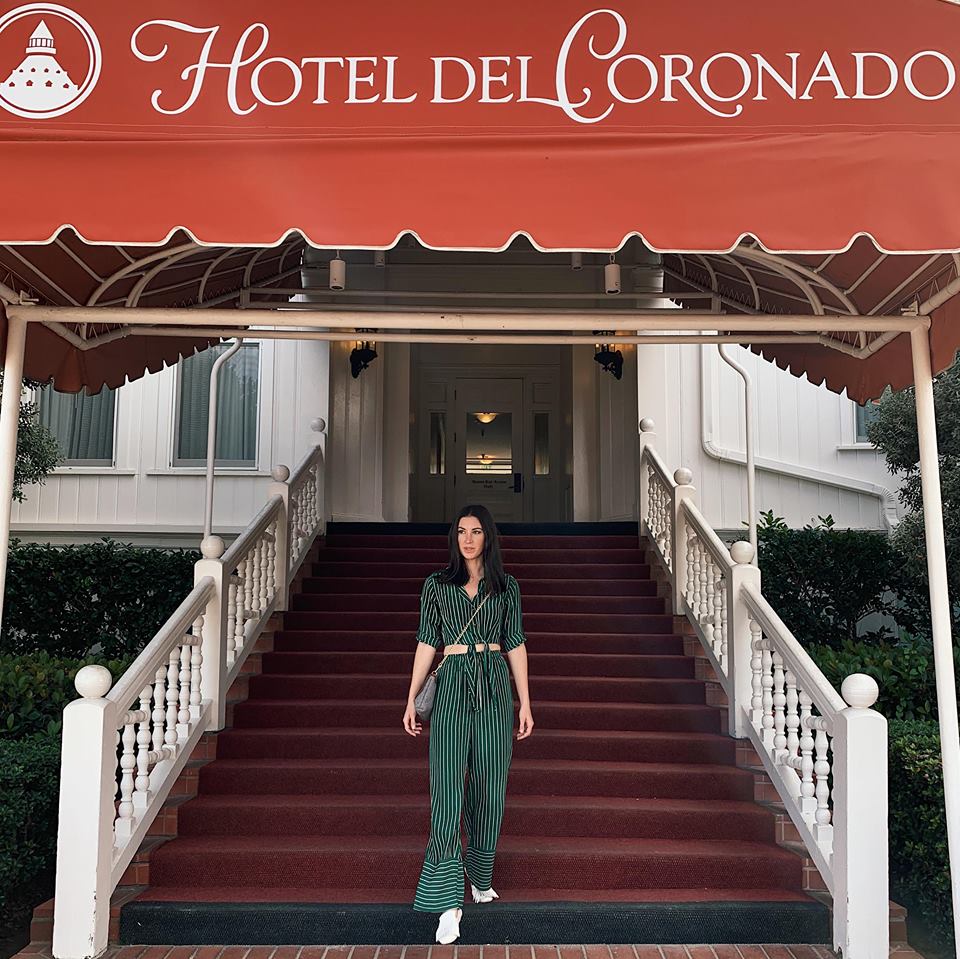
[apss-share]
Hilton’s sustainability goals are intriguing. Corporations, rightfully so, are beginning to bear the brunt of climate change. They have a lot to gain by implementing green practices widely and well. But, they also have a lot to lose if those practices are implemented poorly, or worse nothing is done at all. Travelers are starting to take notice of their environmental impact. Seventy-Eight percent of Americans now consider sustainable travel their new goal. This includes locally sourced foods, social impact activities, and their lodgings. With their 2030 goals, Hilton has set itself on course to become the leader in sustainable travel. But how are they doing it?
*This post is sponsored by Hilton. All opinions, styling, and feedback are my own and in no way influenced by the company. You know my policy: If I like your brand, believe you are working towards authentic sustainable practices, and actually enjoy your products then I will help to raise brand awareness. If not, we don’t work together.
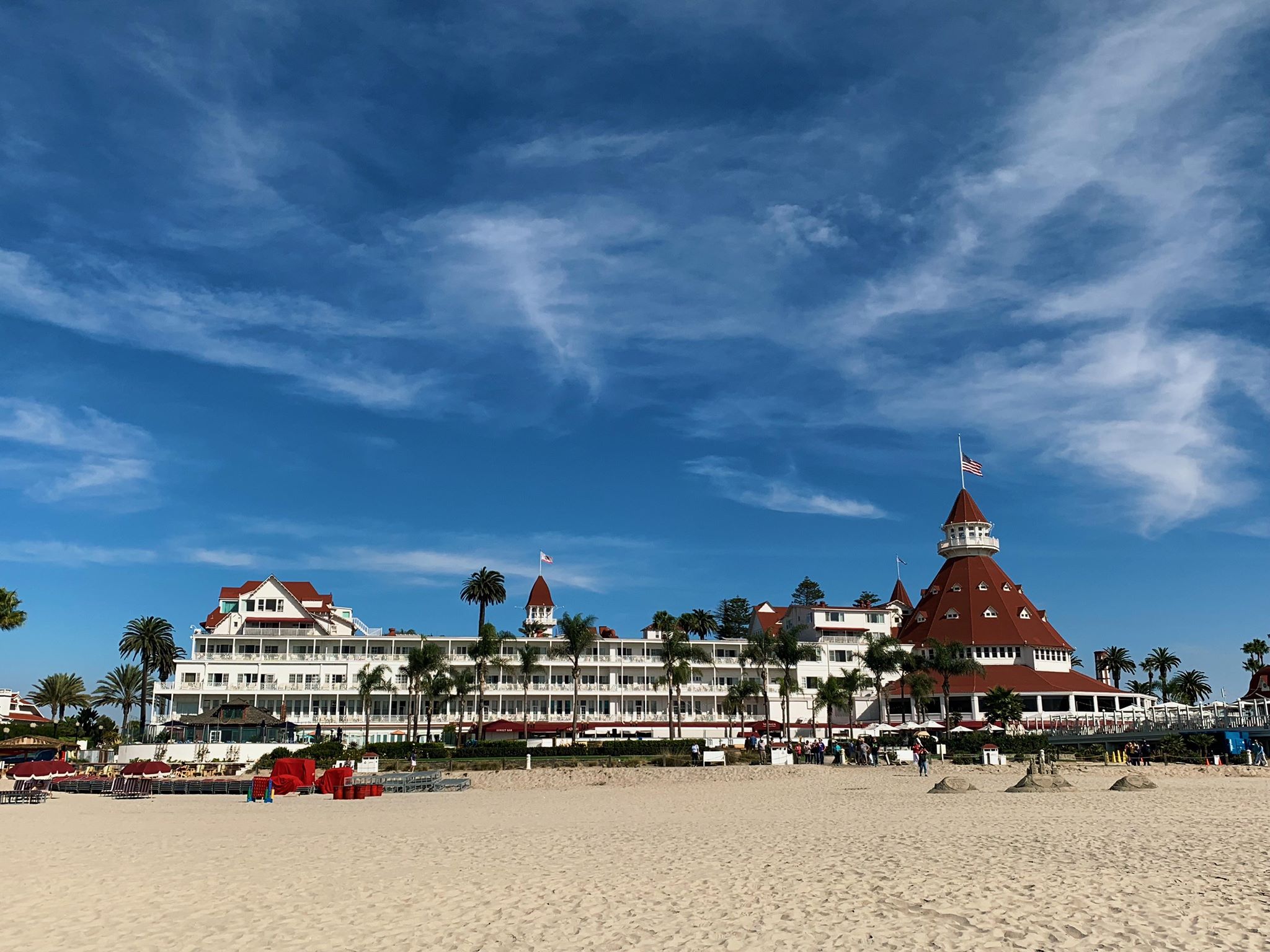
Why Is Responsible Travel Necessary?
The global travel and tourism industry accounts for “10.4% of global GDP and 313 million jobs, or 9.9% of total employment.” Surely that alone is a call for action. A call for change. Not surprisingly, the impact of this trillion dollar industry is quite literally felt around the world. Tourism accounts for eight percent of global greenhouse gas emissions. This large carbon footprint comes from more than just air travel. Events, food, shopping, and lodgings contribute to these outputs too.
While data shows that newer generations value experiences over material items, many remain unsure how to responsibly spend their money. A Nielsen Company survey found that 66% of respondents would pay more to companies committed to positive social and environmental impact. What does this mean? Sustainable practices must be implemented if travel and tourism companies want to capture the market moving forward.
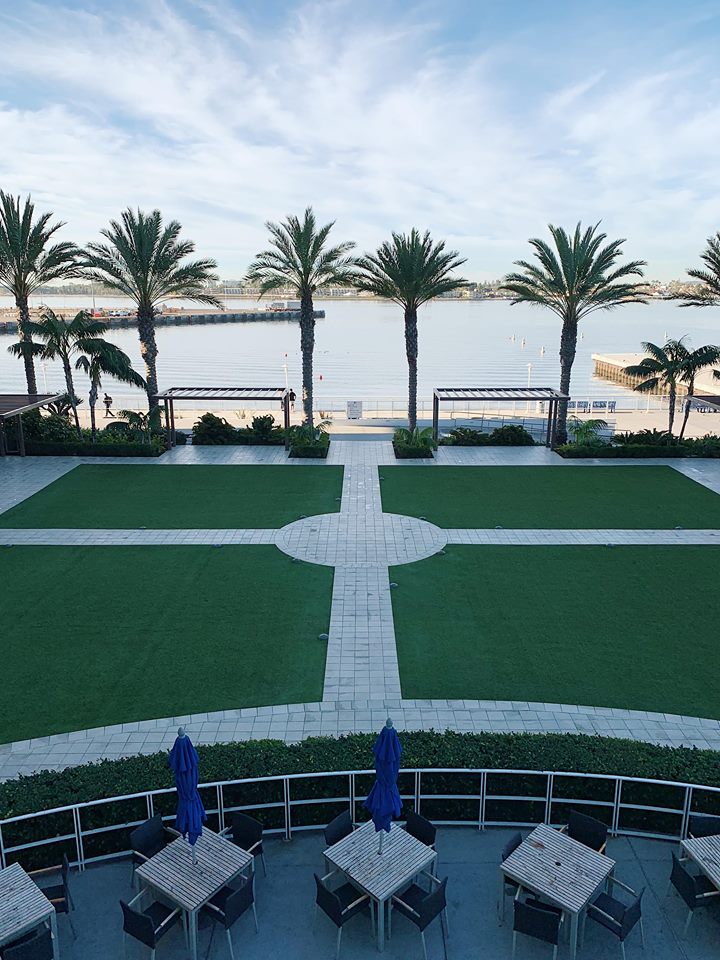
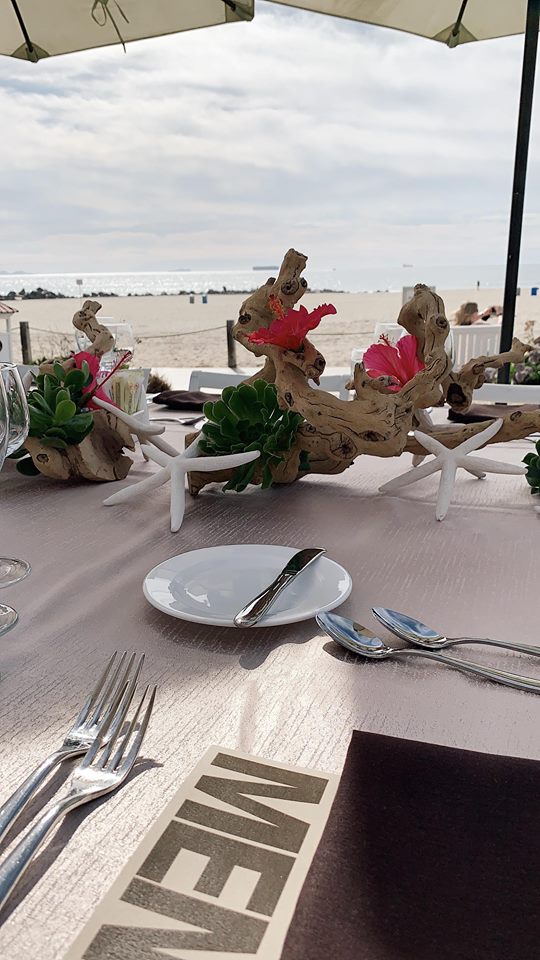
What Are Hilton’s Sustainability Goals?
In May 2018 Hilton announced its 2030 goals of cutting their environmental footprint in half and doubling their social impact. Since then, they have been eagerly working towards reaching these goals before the self imposed deadline. What’s more, they aren’t stopping at these two initiatives. Hilton will also “double the amount it spends with local and minority-owned suppliers, and double its investment in programs to help women and youth around the world.” In order to better understand, Hilton generously accommodated me at the San Diego Bayfront and Hotel del Coronado. Over three days I explored, questioned, and learned about the 2030 goals.
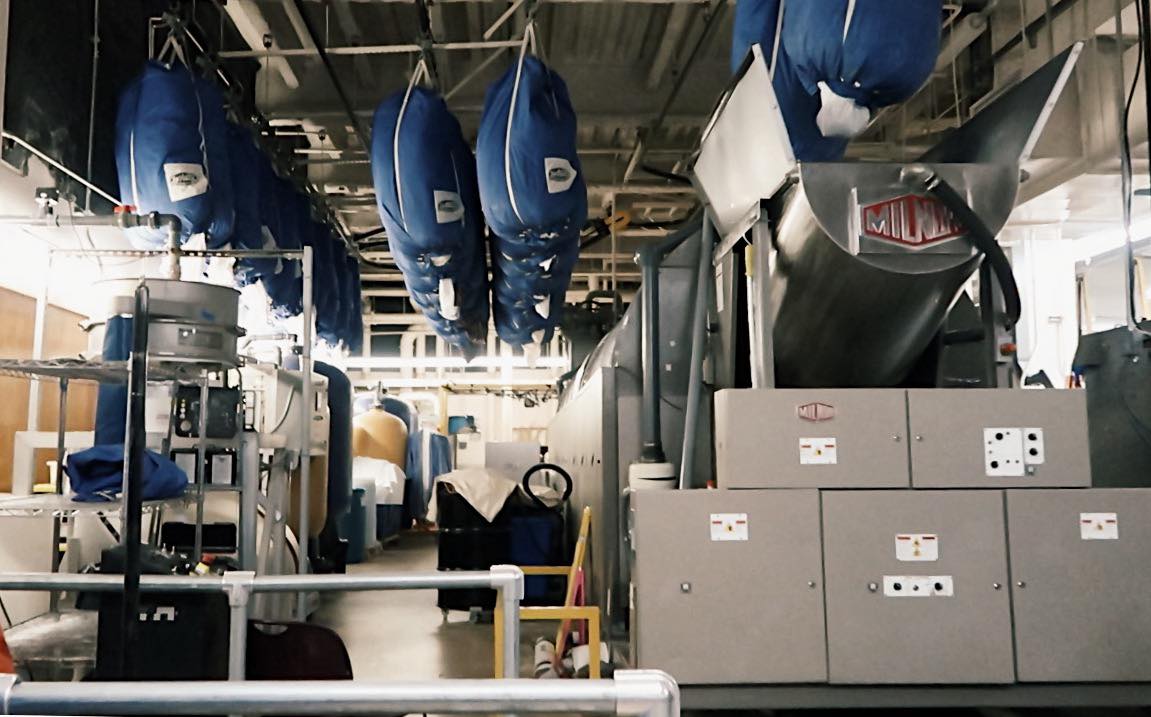
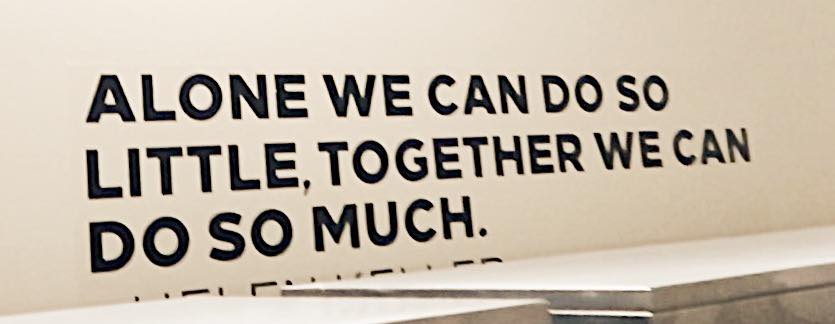
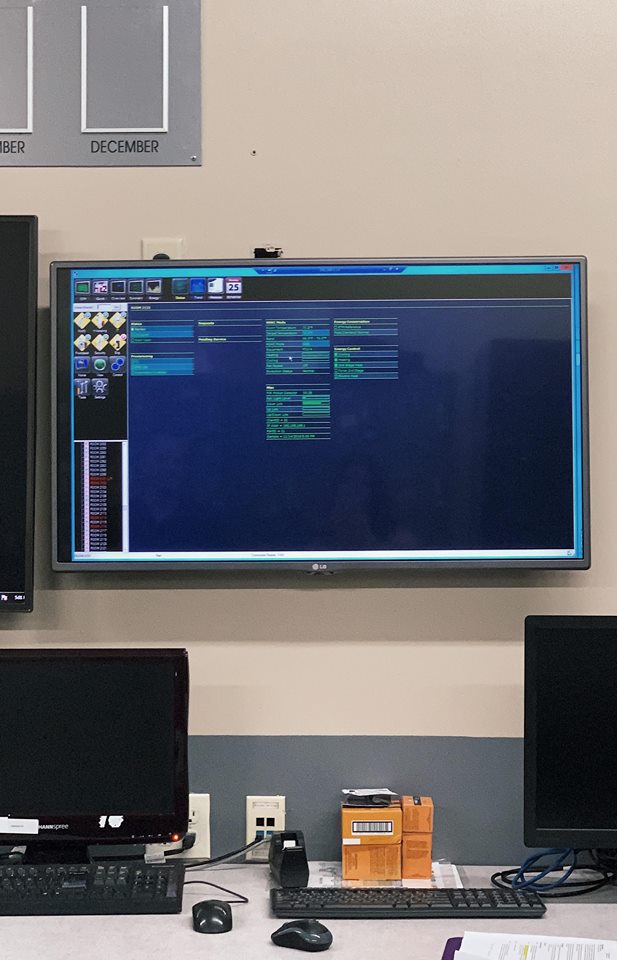
Environmental Impact
Hilton’s sustainability goals are impressive. Their mission to reduce their environmental footprint in half is already well underway with the help of scientific tools. Here are just a few of the things they are doing:
-
Reducing Energy Consumption:
- With the help of LightStay, Hilton’s award-winning sustainability data reporting system, properties are able to track, analyze, and implement energy efficiency changes. This includes controlling temperatures, monitoring light usage in each room, and water consumption reports. With precision, properties like the Bayfront are able to set conference and event room temperatures. This also includes turning industrial equipment, such as laundry facilities, on overtime to avoid energy spikes.
-
Single Use Plastics:
- Each of the properties has vowed to cut single use plastic. This includes everything from straws which are now available only by request to water bottles which are being switched out to refillable glass or ceramic alternatives. These two properties deal quite a bit with corporate and social events. One of the easiest ways to cut down on single use plastics is switching out disposable coffee cups and water bottles for more sustainable options. If you’re a Hilton Honors Member (which is free) going keyless and reducing your plastic waste is now simple. Hilton Honors Members can now access their rooms through a A Digit Key in the Hilton Honors app.
-
Renewable Resources:
- Currently the use of resources remains a local decision – specific to each property. Many of the properties are already choosing to invest in renewable energies. Ft. Lauderdale has three wind turbines, hydro systems have been put in place in New Zealand, and solar panels have been implemented in Hawaii. With the help of renewable credits and investing in research and solutions the move to renewable resources is slowly becoming more corporate. This is in addition to, and with the help of, local and federal governments and renewable energies from partners through the purchasing of credits. Additionally, much attention is focused on the issue of water. Understanding that water sources continue to be pressured, Hilton works with local communities and governments to ensure water usage is equitable, fair, and above all sustainable.
-
Zero Waste:
- Admittedly this doesn’t always come easy to large corporations but the Hilton properties are making waves. One of their goals is to send zero soap to landfills – something that is already being done at the San Diego properties. Unused soaps are sent to recycling programs where over 7 million recycled bars are then distributed to communities in need. Another issue which they are addressing is food waste. Those banquet dinners that are never touched or those items the kitchen doesn’t end up using are donated to the local communities to help combat food insecurities. Additionally, food that can’t be donated is separated, sent to the local landfill, and turned into compost. That compost is then given to the city farms to help grow food for the local communities.
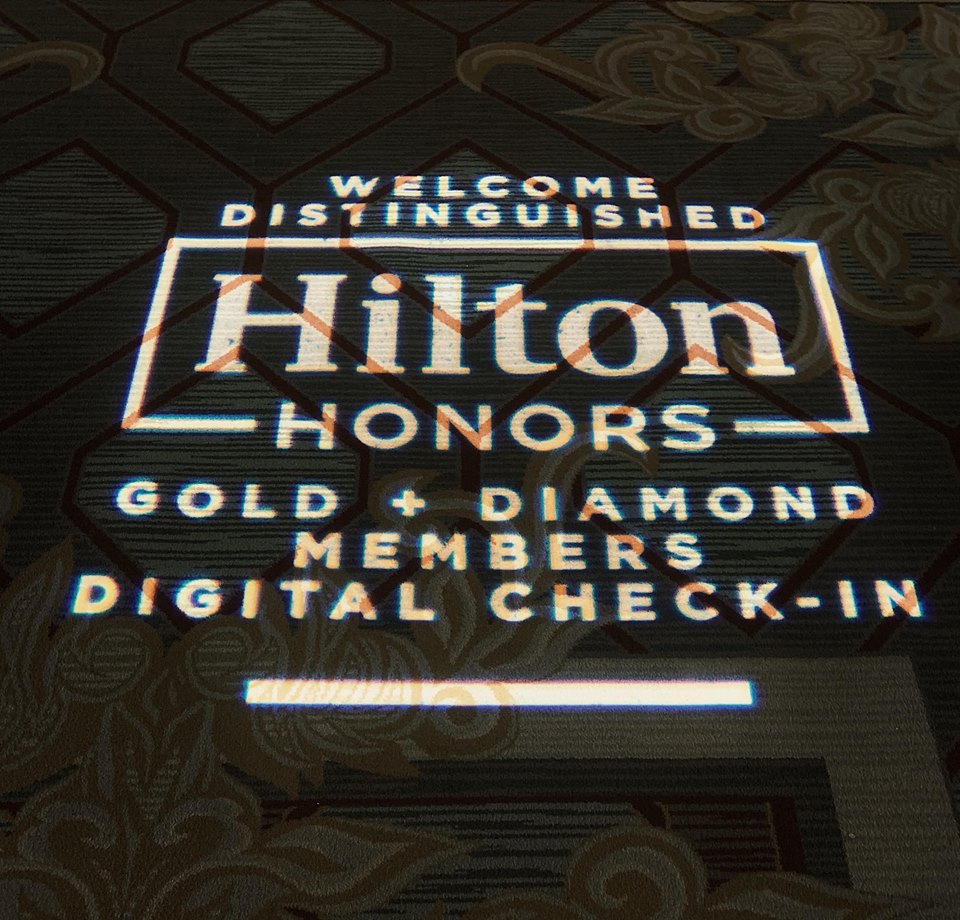
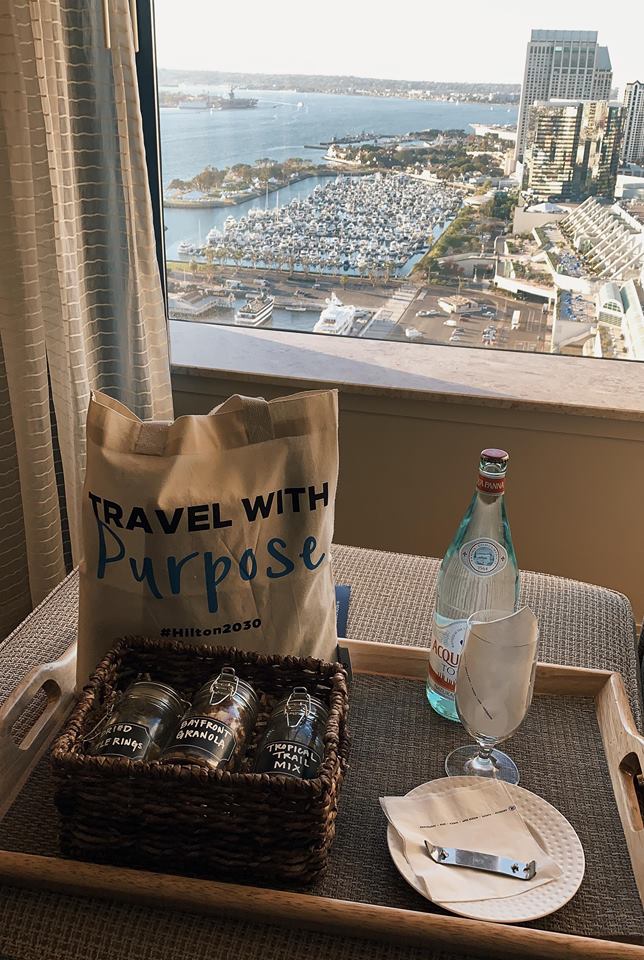
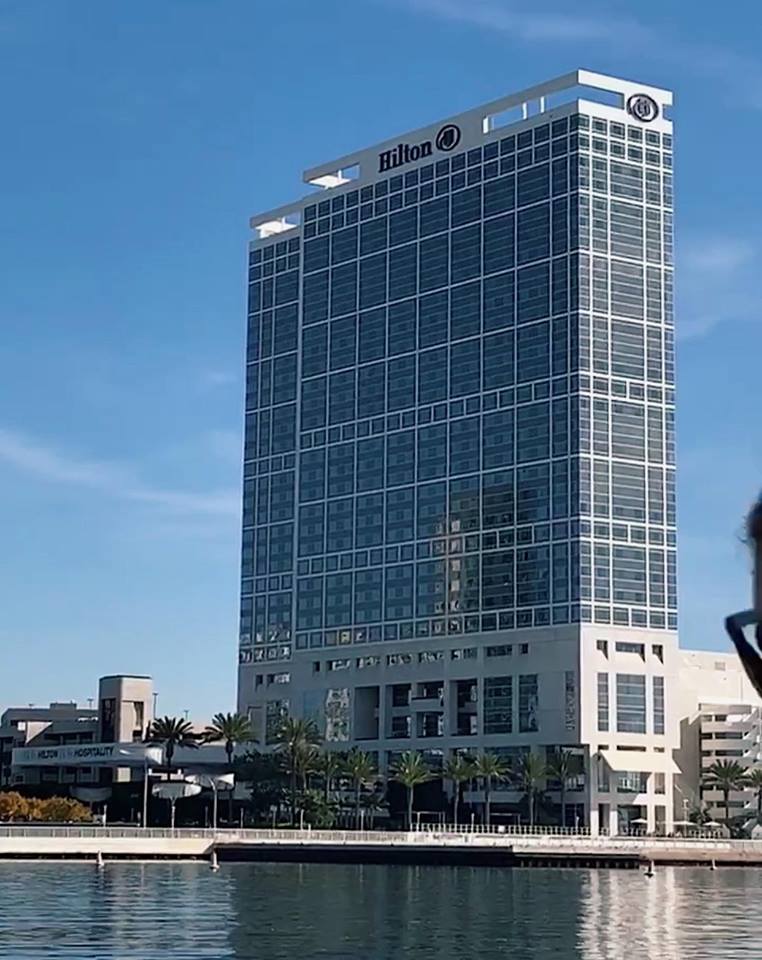
Social Impact
Corporations have a large responsibility when it comes to taking care of the local community. They have the power to uplift or marginalize the communities they operate in. Hilton has made it its mission to uplift those in the vicinity with an eye on global social empowerment.
-
Supporting the Local Community:
- This is done on several fronts. Many of the hotels including the del Coronado are sourcing their food from local farms, fisheries, and vendors. By doing so they are bolstering the livelihoods of those in the area. They go further to support local communities by donating bed linens and towels which are upcycled into needed products.
-
Hiring Practices:
- Hilton isn’t just committed to hiring locally, they are also committed to supporting our military members. They set out with a goal to hire 10,000 veterans, spouses and dependents by 2020 which they quickly surpassed. Instead of saying enough, they pushed this quota to 20,000 which is still underway.
-
Refugees:
- Hilton has been engaging with nearly 3,000 refugees since 2016 through volunteering, training, and employment. In 2018, Hilton joined the Tent Partnership for Refugees, pledging to impact 16,000 refugees by 2030.
-
Human Rights:
- The 2030 goals embed human rights due diligence in global operations. They also work with suppliers to eradicate forced labor and human trafficking in their supply chain. Global brand standards have been set and implemented in the training in anti-human trafficking for all hotels including franchises. In-person training also takes place in hot spots, including around mega-sporting events. Additionally, bespoke training has been developed on the key risks in modern slavery in labor sourcing. This was launched in hundreds of Hilton hotels across Europe, the Middle East, and Africa where recruitment fees in travel and tourism can occur.
-
Inspiring Change:
- Hilton’s sustainability goals don’t stop at their own doors. They work throughout the industry to drive progress on these issues. As members of the International Tourism Partnership they have contributed to the development and launch of the ITP Principles on Forced Labour.




Not All Goals Are Proving Easy
One of the things that is often overlooked is the supply chain. While large corporations such as Hilton have pledged to reduce their environmental impact that doesn’t always mean the resources are readily available to do so. Changing over to eco friendly practices will take time. Before #banthestraw became headline news, Hilton properties such as the Bayfront were already working to reduce single use plastics. While removing straws completely seems like the simplistic way to move forward, that isn’t always possible. Given the volume of guests and events the Bayfront handles on a daily basis an alternative needs to be found. The problem is, because of this volume, suppliers who provide alternatives aren’t always ready to handle that amount of business. This is why not every goal will be easily achieved and many will take time.
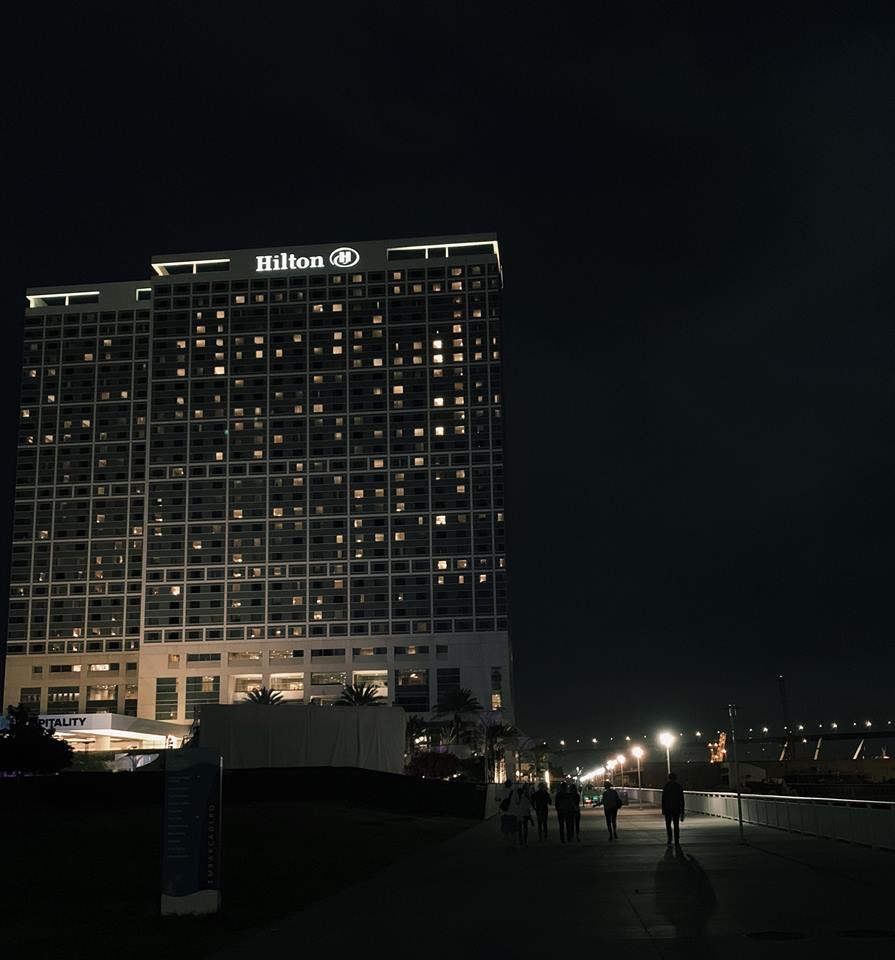
Why Stay At Hilton?
I’ve been a long time proponent of Hilton. At first, this was mostly due to their accessibility and property offerings. However, I’ve watched over the last several years as the company has gone above and beyond to accommodate their guests. Team members are always there for you no matter how ridiculous your question may seem. The food, in my opinion, has always sat above any other brand. And now, that they are widely incorporating seasonal and locally produced goods, it is that much better. Amenities such as the Spa at del Coronado never disappoint. I was happy to see the abundant use of organic, natural, and local products which were expertly explained by the Team Members. It is clear after staying at Hilton that the Team Members love their jobs. That love translates directly to you as the traveler making you feel like part of the family: inviting, comfortable, and relaxing.

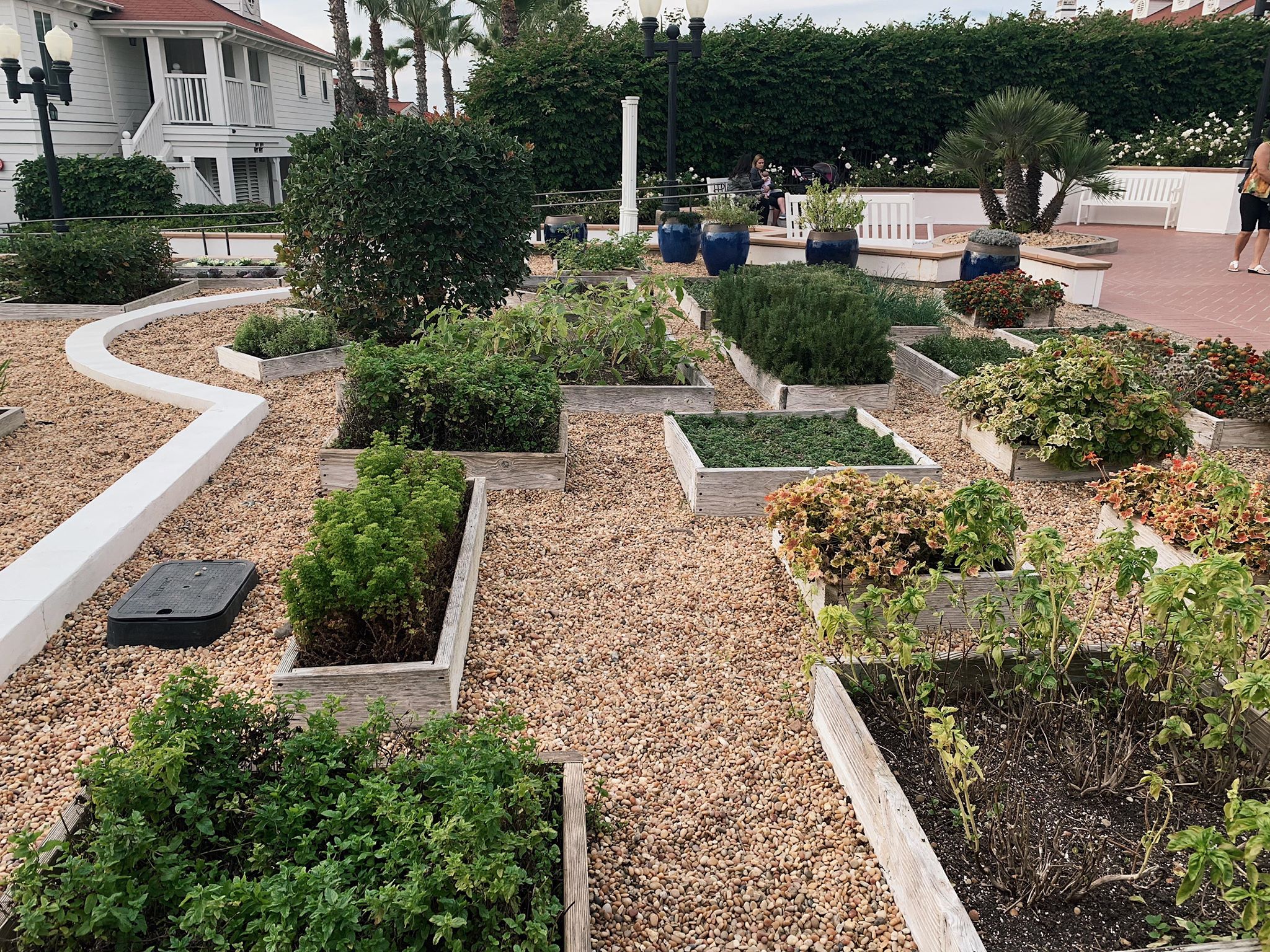
The Future Of Responsible Travel
No company is without flaw and it will take time to implement these aggressive goals. But, Hilton is leading the way with their 2030 initiatives. As travelers it is our job to ask questions, to demand more, and to support those businesses which are making a positive change. While Hiltons worldwide are undertaking this massive endeavor some will adapt and adopt more quickly than others. All Hilton properties thrive on your feedback. Those that may be a bit slower to adapt need to hear from you. Let them know you support their mission, talk to the managers – they are listening, and ask them about their pursuits. And, most importantly #TravelwithPurpose.



